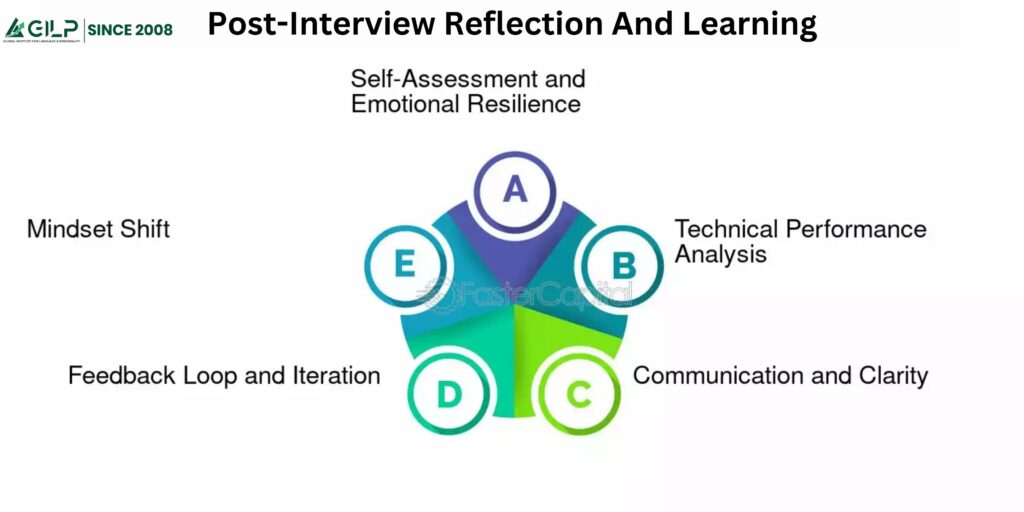Crush Your English Exams and Interviews with These Speaking Tips!
Being in an English exams or a job interview can be nerve-wracking, especially with speaking parts into consideration. The pressure of time in getting answers might be overwhelming; adding to that is the fear of messing up in front of the interviewer. Imagine turning your jittery nerves into confidence and rocking your English exam and the interview! Speaking skills and a huge amount of practice make it all happen. With much practice and ploys, not only will you speak fluently, but you’ll also be able to communicate effectively. The purpose of this blog is to share some useful tips and techniques to help you with English-speaking exams and interviews, boost your confidence, and sharpen your communication skills for the success that lies ahead. Get ready to nail those speaking tasks!

1. Understanding the Role of Speaking in English Exams
The speaking section of English exams helps to assess the extent to which one can communicate in real-life situations. Given that all the other sections assess passive skills-reading, writing, and listening, the speaking test is designed to assess your ability to produce ideas into speech: how well you will produce those ideas, and how clearly, effectively, and confidently you convey them. It attempts to measure a variety of speaking skills ranging from pronunciation and fluency to vocabulary usage and grammatical accuracy.
Just like in the speaking section of IELTS or TOEFL or even a Cambridge exam, this stage has its own landscape where it could be questions, discussions, or in some instances just picture description. You may be asked to provide personal opinions, hypothesize on scenarios, or delve into elaborate answers about everyday topics. Most of the time, you are taking part in one-on-one conversations with an examiner or small group discussions. What they are doing here is mimicking real-world experiences in communication, thereby making this section very important part of your test.
There are many criteria that are usually assessed in judging performance: fluency, the extent to which one speaks without unnecessary pauses or hesitation; coherence, the logical and clear organization of ideas; pronunciation, that is the degree in which speech can be easily understood by native speakers; and vocabulary, which indicates both the range and accuracy of words used. Examiners would consider also everything related to grammar and your ability to answer the examination paper when appropriate for the questions given.
Fathoming the speaking segment aids one to address the very crucial features of a student’s ability, namely self-assuredness, clarity, and inventiveness into them, which are proves effective for getting good grades as well as in real-life scenarios.
2. Building Strong Foundations: Preparing for English Exams Speaking Section
Mastering the speaking segment of an English examination must center on creating a firm foundation to prop up the remaining skills. Your preparation should not only focus on memorizing answers; rather, it needs to enhance core abilities that bring out clear and confident communication in you.
Second, pronunciation improvement is primary. Clear pronunciation offers necessary intelligibility to the examiner: The bottom line—Good marks! Ensure you work this area in particular: A good command of single sounds, stress patterns, and intonation will all contribute to improved pronunciation in your speech. Some of the more difficult sounds and syllable stresses cause many problems for learners. Therefore, pay special attention here. Maximize opportunities to listen to native speakers and imitate their sounds and rhythms. This badly needs to be done for clarity.
A good vocabulary is, therefore, essential to expressing thought clearly. With a good vocabulary, you become capable of furnishing elaborate and correct responses. An enriched vocabulary gives more life to your answers and lessens the chances of becoming repetitive. Start with learning synonyms and vocabulary related to particular topics, which will build an arsenal of words for you to use in answering the questions. Use these words as much as you can in your daily life to grow comfortable with them in context.
Lastly, it is imperative to attain fluency. Fluency means speaking with ease, without too many interruptions or hesitations. The more you speak on a regular basis, the more fluent you will become. So get talking to language partners, record yourself practicing speaking, and take mock speaking exams. Working within the confines of time will make you comfortable in thinking and responding with quickness and assurance.
A translation error is likely to happen as AI-analyzed texts are human translated under proper robotics.
3. Strategies to Improve Fluency for English Exams Speaking Section
Improving one’s fluency for speaking sections of English exams would require a lot of practice in smooth and confident speaking without pausing or hesitating. Some of these ways are as follows:
1. Speaking Practice on a Daily Basis: Actually what really matters is to practice fluency. Speak English every day, whether it is with a language partner or on online conversation platforms or even record yourself and keep talking. The more you practice, the more of it becomes second nature for you.
2. Practice Mock Speaking Exams: Mock tests inculcate the exam atmosphere in the mind and rejuvenate the students with the much-needed confidence and fluency. Speak on different topics within a specified time limit, thus creating an outline closer to the actual experience of the exam.
3. Think in English: To speak with fluency, try to think directly in English instead of translating from your own language. This lessens your hesitations and allows you to respond more naturally in your exam.
4. Japanese Fillers Work Wonders: In conversations or during the exam, while these fillers do not give you any points, “Well,” “Let me think,” or “That’s an interesting question” could still earn you some extra seconds to think as opposed to hindering your fluency.
5. Prioritize Natural Flow Over Perfection: Deviate from considering perfect grammar and keep a natural speaking style. Above all, be understood confidently, not fretting about every little error.
You would get all these strategies into your preparations and improve your speaking fluency, as you would have a better chance of expressing yourself during the exam or any live situation.

4. Interview-Specific Tips to Succeed in English Job Interviews
Well, we can tell you that failure will follow once you miss the well-prepared, self-confident, and, above all, clear communication guideline. Here are some tips for a smooth run in the interview:
1. Be Aware of Interview Questions: The applicant must be aware of questions that are asked many times, such as “Tell me about yourself,” “Why do you want to work here?” or “What are your strengths and weaknesses?” Be prepared by preparing something short and to the point, showing how your skills and experience relate to the question.
2. Be ready to put the STAR technique into practice: The STAR method (Situation, Task, Action, Result) serves as a good framework for answering behavioral questions. In this way, your answers would be organized and would depict the actions taken by you in given scenarios back in history.
3. Be Clear and Concise: Interviews require clearness in answer, avoid long-winded answer and stay focused. The person should give a response clear that is short and directly answers the questions.
4. Show Enthusiasm and Confidence: Employers love candidates who show an interest in the role. Show your sincerity in the company and your interests in the job, all with confidence but humility.
5. Active Listening: Perfect attention should be paid to the questions and comments made by the interviewer. Nodding and maintaining eye contact, responding thoughtfully will prove engagement. This will also give the opportunity for well-researched follow-up questions.
You shall demonstrate and prove your English skills and put up a solid front as an ultra-confident candidate at that interview using the several interview tips mentioned above.
5. How to Sound Confident and Professional During Interviews
It’s what it takes to cut a profile in the minds of interviewers that these two parameters: believe in a confident professional demeanor while being interviewed. Here are the basic tricks to help you:
1. Adopt a Good Posture: Do hold your posture erect; do not slump over when sitting. Good posture is part of what conveys confidence and professionalism. It does affect how alert and engaged you will be during the meeting.
2. Give clear and steady Cadence to your Words: Pace Speech well and enunciate every word; do not rush through your answers. When you rush through answers, it gives you the impression that you’re so badly interviewed. Instead, you could adopt a 15-second pause before answering to collect your thoughts for confidence in giving a response.
3. Use A Strong Clear Voice: Confidence comes across in a firm voice; avoid projecting your voice so softly that it creates a possible impression that you are unsure of yourself. Your voice should sound in clear, steady sounds but not to the extent of being forced.
4. Make Eye Contact: Make sure to have eye contact with your interviewer when engaged in conversation about how to understand things since it indicates that you are completely aware and focused on what is being discussed. This dose not only registers the fact that you are completely into what he is saying, but also gives a message of confidence and honesty; just be careful about not going overboard into aggressiveness, though – it should be moderated.
These strategies will help you sound more confident, professional, and composed at your interview and on the road to making a positive impression.
6. Time Management: Managing the Speaking Section of English Exams and Interviews
In any English exams or job interviews, time management plays a very significant role in successful performances in these speaking sections. Conscious time management allows you to give well-thought-out and elaborated answers, bearing in mind the time limit. The following tips can assist you in managing your time:
1. Consciousness of Time Limits: Generally, each speaking activity or question in English exams and interviews has a set time limit. Awareness of the time limit pertaining to each question will prevent you from either rushing through the answer or giving an incomplete one. During your preparation, take time to set a timer to mimic exam conditions and practice answering questions within the set time.
2. Please answer in a clear fashion: An organized response is a concise and informative one. In your answer, have a clear Introduction-Body-Conclusion format. This will help you narrow down what you’re saying and avoid ramblings when it comes to English exams. For job interviews, deliver answers using the STAR method (Situation, Task, Action, Result), especially for behavior type questions.
3. Give a comprehensive but brief answer: Only go into long, irrelevant detail as an exception. Focus your answer like as much as possible on that particular question, so it will have the completeness without overwhelming the listener with too much carried detail. This would keep them also on purpose for what that time is most making effective use of.
Through these time management techniques, you can work out issues of calmness, concentration, or orderliness that would definitely help in getting your answers complete and even more confident in English exams or interviews.

7. Post-Exam and Interview Reflection: How to Continue Improving
After an English exam or a job interview, it is important to reflect on what you did well and where your weaknesses lie so that you can continue growing and improving. This thereby enables you to plan ahead for future success. Here are key steps to help you in reflecting and thereby ensuring that you keep getting better:
1. Evaluating Performance: After the exam or interview, one must find the time to look back upon one’s answers. With regard to the English examination, you would look at fluency, pronunciation, and clarity. For interviews, examine how well you expressed your skills, your experiences, and your overall confidence. Acknowledging the things you’ve done right as well as mistakes will give you insights you need to work upon.
2. Solicit Feedback: Do engage the examiner or interviewer for feedback whenever there might be an opportunity. Constructive feedback will highlight the areas where you struggled-the grammar, vocabulary use, or structure of your answers-and make clear what you need to work on.
3. Identify Patterns: Review your performance as a whole to identify patterns of difficulty.Do you feel pressure? Are there certain types of questions that give you trouble? Recognizing such patterns can help you organize your practice around areas of weakness and thus facilitate improved study efficiency.
4. Set New Goals: Informed by your reflections, set goals for improvement with specific criteria and measurement. Improving on a specific vocabulary set, pronunciation practice, or concise answers-whoever defines your effort will motivate the focus of your endeavors.
Stream after exam and interview reflection and target setting to continue improvements for greater chances of success in speaking tasks ahead.
Ready to ace your English exams and interviews? Start practicing these speaking tips today and unlock your full potential!
Conclusion
Basically, if you aim to win, achieving mastery over the speaking part of English exams and interviews is paramount. Key factors that really help you become more competent and communicate better are pronunciation, vocabulary, fluency, and confidence. Structured strategies, regular practice, and honest self-assessment after every exam or interview help establish a cycle of continuous growth and skill enhancement. Do hold onto the fact: confidence and clarity are your two best friends. With work and the right strategies, you will be able, easily, to walk through any kind of English speaking task-whether in exams or job interviews. Apply these strategies right now, and you will see a leap in your English speaking ability!
